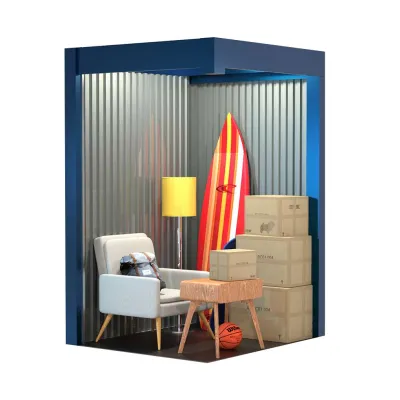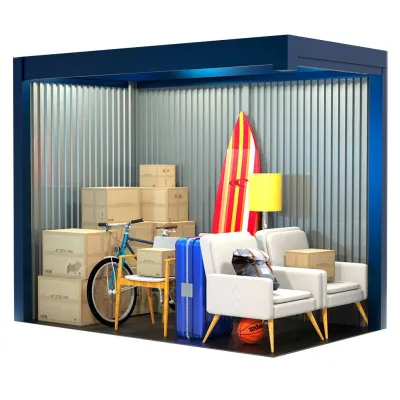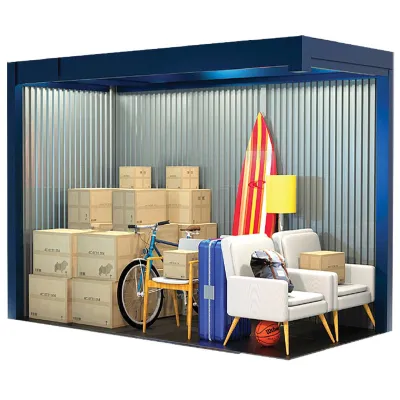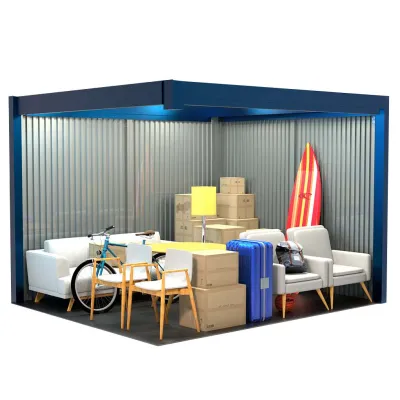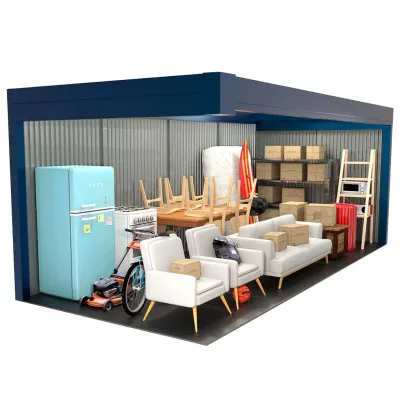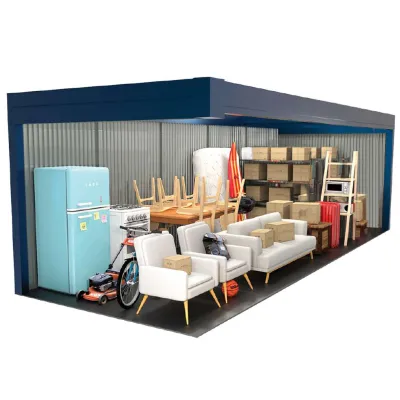
Winter-Proof Your RV with These Essential Storage Tips
When the temperatures drop and you've checked off all your summer bucket list adventures, it's time to think about RV winter storage. Proper storage not only protects your investment but also ensures it's ready to hit the road when warmer weather returns.
This guide will walk you through everything you need to know for RV winter storage, from choosing the right storage location to engine maintenance. Let's get started on making sure your RV weathers the winter like a pro!
Picking the Perfect Storage Spot
Finding the right RV winter storage location is crucial. While some people might have the convenience of storing their RV at home, this isn't always the best option. Many neighborhoods have restrictions on parking large vehicles for long periods. Plus, your driveway may not offer the protection your RV needs from the elements.
Consider indoor storage facilities like Midgard Self Storage. They offer specialized spaces designed to keep your RV out of harsh weather conditions. An indoor facility provides added shelter and can help prevent costly damage compared to outdoor storage.
Clean and Inspect Your RV
Before using RV winter storage, give it a thorough cleaning. Start by removing all items from the interior. This includes food, clothing, toiletries, and any valuables. Cleaning out your RV reduces the risk of mold, mildew, and pest infestations.
Once the interior is clutter-free, do a deep clean. Wipe down surfaces, vacuum carpets, and clean the bathroom and kitchen areas. Don't forget to empty and clean your refrigerator to avoid unpleasant odors.
With your RV spotless, move on to an inspection. Check for any signs of wear and tear. Look at both the interior and exterior for damage. Addressing these issues now will save you from more significant repairs later.
Winterize the Plumbing System
Winterizing your RV's plumbing system is essential to prevent pipes from freezing and bursting. Begin by draining all water from the system. This includes the freshwater tank, greywater tank, and blackwater tank.
Next, use an air compressor to blow out any remaining water from the lines. Afterward, add non-toxic RV antifreeze to the plumbing system. This extra step ensures that any leftover water won't freeze and cause damage.
And don't forget the water heater! Drain it and bypass it if your RV has a bypass kit installed. This will prevent antifreeze from entering the heater, which isn't necessary and can be wasteful.
Seal and Fix the Exterior
Your RV's exterior is its first line of defense against the elements during RV winter storage. Inspect it for cracks, leaks, or any other potential vulnerabilities. Pay special attention to the roof, windows, and doors.
Seal any cracks or gaps using a high-quality sealant. This will prevent water from seeping into your RV and causing damage. Also, check the condition of your RV's roof and apply a protective coating if needed.
If your RV has awnings, make sure they are clean and dry before retracting them. This prevents mold and mildew growth over the winter months.
Tire Maintenance Matters
Tire care is often overlooked but is crucial during RV winter storage. Start by cleaning your tires and checking the tread for wear. Replace any tires that show significant damage.
Inflate your tires to the recommended pressure. Underinflated tires can develop flat spots and cracks during storage. Additionally, consider using tire covers to protect them from UV damage and cold temperatures.
If possible, move your RV once a month to prevent flat spots. If you can't move it, place your RV on blocks to take the weight off the tires.
Battery Care for the Cold Months
Your RV's battery needs special attention before winter storage. Start by fully charging the battery. A fully charged battery is less likely to freeze.
Once charged, disconnect the battery to prevent it from draining during storage. Store the battery in a cool, dry place. Regularly check the battery's charge and top it off if necessary.
For added protection, you can use a battery maintainer. This device keeps your battery at an optimal charge level throughout the storage period.
Protect the Engine and Fuel System
Your RV's engine and fuel system also need preparation before the winter. Add a fuel stabilizer to your gas tank. This prevents the fuel from breaking down and causing damage to the engine.
After adding the stabilizer, run the engine for a few minutes. This ensures that the stabilizer circulates throughout the system.
Change the oil and replace the oil filter. Old oil can contain contaminants that may cause damage when sitting for long periods. Fresh oil helps protect your engine through the winter.
Final Check-Up and Interior Care
Before saying goodbye to your RV for the winter, conduct a final check-up. Make sure all windows and vents are closed. This helps prevent moisture and pests from getting inside.
Remove any valuables from the interior. This includes electronics, jewelry, and important documents. It's better to be safe than sorry.
Finally, cover your RV with a breathable, weather-resistant cover. This adds an extra layer of protection against the elements.
Let Midgard Take Care of Your Travel Buddy
With these essential storage tips, you can winter-proof your RV and rest easy knowing it's covered until your next adventure. At Midgard Self Storage, we offer specialized indoor spaces to protect your RV from the harsh winter weather. Contact us today to learn more about our storage options and keep your rig in top shape for years to come!

